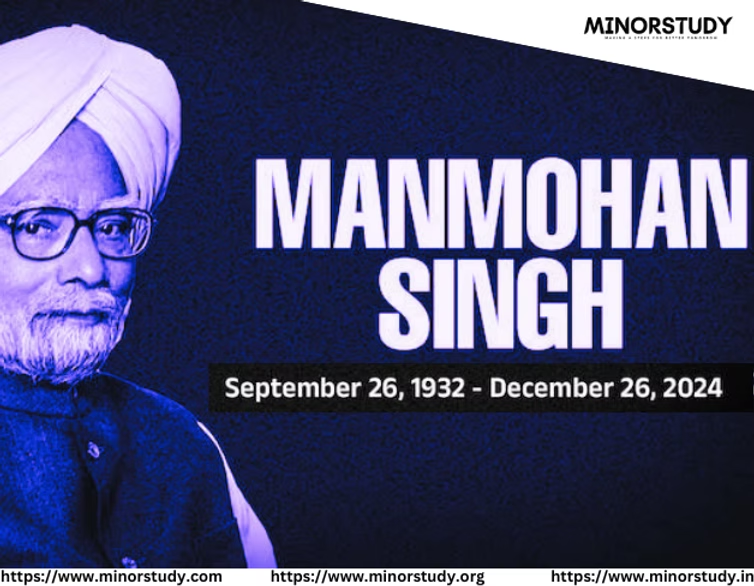🏛️ All About Dr. Manmohan Singh: History, Facts, Timeline, FAQs, Significance & Daily Life Impact
Dr. Manmohan Singh is more than just a name in Indian politics — he is a symbol of integrity, intellect, and quiet resilience. As India’s first Sikh Prime Minister, a globally respected economist, and a key architect of India’s economic liberalization, Dr. Singh’s contributions transcend party lines and political timelines.
- 📖 A Glimpse into History: Who is Dr. Manmohan Singh?
- 📅 Timeline: The Life and Career of Dr. Manmohan Singh
- 🌟 9 Powerful Reasons Why Dr. Manmohan Singh Remains a Respected Force in Indian History
- 1. Architect of India’s Economic Liberalization (1991)
- 2. An Economist Prime Minister
- 3. Global Recognition
- 4. Sikh Representation at the Highest Level
- 5. Unblemished Record of Integrity
- 6. Education First Advocate
- 7. A Soft-Spoken, Gentle Power
- 8. Healthcare and Welfare Schemes
- 9. Handled Global Financial Crisis
- 🧠 Interesting & Lesser-Known Facts
- ❓ Frequently Asked Questions (FAQs)
- 🌍 Global and National Significance
- 🎉 Observance & Wishing on His Birthday
- 💼 Importance in Daily Life
- 🧭 Key Points & Takeaways
- 💬 Conclusion: A Gentle Giant of Indian Democracy
In this deep-dive article of over 1200+ words, written with a human-friendly tone, you’ll discover:
A comprehensive history of Dr. Singh’s life
Unique facts that shaped his identity
A detailed timeline of achievements
Curated FAQs
His significance in modern India
Wishing tributes to his legacy
Why he matters to our daily lives
And his importance to society
📖 A Glimpse into History: Who is Dr. Manmohan Singh?
Born on 26 September 1932 in Gah, Punjab (now in Pakistan), Dr. Manmohan Singh’s life story is one of humility, education, and quiet determination. After the Partition of India, his family migrated to Amritsar, where he continued his studies and rose to become one of India’s most educated leaders.
He holds degrees from Punjab University, University of Cambridge, and University of Oxford, with a DPhil in Economics. Before entering politics, Dr. Singh held several key academic and bureaucratic roles, including:
Governor of Reserve Bank of India (1982–1985)
Chief Economic Advisor
Deputy Chairman of the Planning Commission
📅 Timeline: The Life and Career of Dr. Manmohan Singh
| Year | Milestone |
|---|---|
| 1932 | Born in Gah, Punjab (now Pakistan) |
| 1952–1957 | Graduated from Punjab University; completed Economics at Cambridge |
| 1960s–70s | Academic roles, UNCTAD Economic Affairs Officer, and Government Economist |
| 1982–1985 | Governor, Reserve Bank of India |
| 1991 | Appointed Finance Minister of India under PM Narasimha Rao |
| 2004 | Became 13th Prime Minister of India |
| 2009 | Re-elected as PM after UPA’s second victory |
| 2014 | Stepped down after two terms as PM |
🌟 9 Powerful Reasons Why Dr. Manmohan Singh Remains a Respected Force in Indian History
1. Architect of India’s Economic Liberalization (1991)
Dr. Singh is best remembered for ushering in economic reforms in 1991, lifting India from the brink of a balance of payments crisis. His liberalization policy opened India to the world, leading to foreign investments, technological growth, and job creation.
“India is no longer a prisoner of its past. It has a future which is full of hope.” — Dr. Singh, 1991 Budget Speech
2. An Economist Prime Minister
He is one of the few world leaders with deep economic insight, having authored academic papers, books, and economic policies that are still studied today.
3. Global Recognition
Dr. Singh was often described as a global statesman. International leaders praised his humility, wisdom, and steady leadership during global economic downturns.
4. Sikh Representation at the Highest Level
He became India’s first Sikh Prime Minister, making history not only politically but symbolically — representing religious diversity and inclusion.
5. Unblemished Record of Integrity
In an age of political mudslinging, Dr. Singh stood out for his clean image. Despite holding top offices, he was never accused of personal corruption.
6. Education First Advocate
Dr. Singh invested significantly in education and innovation. Under his leadership, IITs and IIMs expanded, and Right to Education became a priority.
7. A Soft-Spoken, Gentle Power
Unlike loud and aggressive leaders, Dr. Singh’s strength came from dignity, calmness, and rational decision-making, winning hearts across all spectrums.
8. Healthcare and Welfare Schemes
Schemes like NRHM (National Rural Health Mission) and MNREGA were either launched or scaled during his tenure, benefitting millions of underprivileged citizens.
9. Handled Global Financial Crisis
Under his leadership, India weathered the 2008 global financial crisis relatively well, with timely stimulus packages and prudent banking policies.
🧠 Interesting & Lesser-Known Facts
Dr. Singh wrote his PhD thesis on India’s export performance.
He lost his mother at a young age and was raised by his grandmother.
Despite political opposition, many rivals respected him — including Atal Bihari Vajpayee, who once said: “We can’t question Manmohan Singh’s integrity.”
He rarely raised his voice in Parliament — yet his economic policies roared with long-term impact.
He has been awarded honorary doctorates from Oxford, Cambridge, and other global institutions.
❓ Frequently Asked Questions (FAQs)
Q1: What are Dr. Manmohan Singh’s biggest achievements?
A: Economic liberalization (1991), stabilizing India during the 2008 crisis, and creating policies like MNREGA and RTI Act.
Q2: Is he still active in politics?
A: As of recent years, Dr. Singh has taken a backseat in active politics due to age and health but remains a respected voice.
Q3: Was he a nominated PM or elected?
A: Though not directly elected to the Lok Sabha, he became Prime Minister with the majority support of the UPA coalition.
Q4: Why is he sometimes criticized?
A: Critics point to silence during certain corruption scandals within UPA II. However, no direct involvement has ever been proven against him.
Q5: Is there a day dedicated to him?
A: While there’s no official national day, 26 September is widely acknowledged by academics and economists to honor his contributions.
🌍 Global and National Significance
Dr. Singh’s significance lies in his transformational reforms. Had India not liberalized in 1991:
Foreign investment would have remained low
Mobile & IT revolution would’ve been delayed
Middle-class growth would’ve stagnated
He redefined India’s image globally — from a slow socialist economy to an ambitious and open economy ready to take on the world.
🎉 Observance & Wishing on His Birthday
On 26 September, well-wishers, political leaders, academicians, and citizens across India send their birthday greetings and pay tribute via:
Online tributes & videos
Essays in economic journals
University seminars on liberalization
Speeches by former colleagues
“Wishing Dr. Manmohan Singh a long life, peace, and health. May your wisdom continue to guide India’s future.”
💼 Importance in Daily Life
You may not see it, but Dr. Singh’s work impacts your daily life:
The smartphone you use— possible due to foreign tech firms post-liberalization
Job opportunities in private and MNC sectors
Affordable goods due to global trade
Government transparency tools like RTI
Welfare schemes like MNREGA that reduced rural distress
His vision translates into opportunities and freedom of choice for today’s youth and middle class.
🧭 Key Points & Takeaways
India’s most qualified Prime Minister
Led the 1991 economic reforms
Global recognition and national dignity
Believed in silent service over self-promotion
Symbol of non-corrupt leadership
💬 Conclusion: A Gentle Giant of Indian Democracy
Dr. Manmohan Singh’s legacy reminds us that you don’t need to shout to lead. You don’t need to be charismatic to be effective, and you don’t need to be aggressive to be respected.
In a world increasingly drawn to spectacle, Dr. Singh’s calm, measured, and truth-driven governance stands as a beacon of hope. His story is one of merit, ethics, and vision — showing us what true leadership looks like.
“The future is always full of possibilities — we just need to listen more and speak less.” — Dr. Singh









What i do not understood is in fact how you’re now not actually much more well-liked than you may be now. You are very intelligent. You recognize therefore considerably on the subject of this topic, made me for my part consider it from a lot of varied angles. Its like men and women are not interested until it is one thing to do with Lady gaga! Your own stuffs nice. Always handle it up!